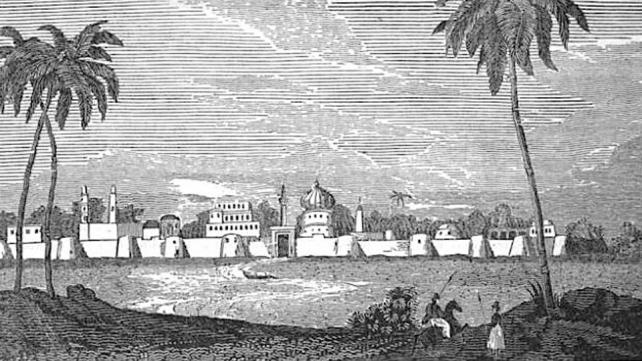
When Muslims think of Baghdad, they don't think of Saddam Hussain. Tyrants like him come and go.
When Muslims think of Baghdad, they think of their glorious past: the legends of Caliph Harun Rashid; the libraries of this great city, which were the largest in the world; literary classics like the 1001 Arabian Nights; scholars like al-Kindi, al-Razi, Al-Farabi and, one of the greatest Islamic scholars of all time, Imam Abu Haneefa.
They also remember the blessed Prophet Abraham, peace be upon him, as well as the grandson of Prophet Muhammad, peace and blessings be upon him, stood up to the tyranny of kings.
For most Americans, Baghdad represents a land of despotism, tyranny, suffering, backwardness, and danger. While most Muslims sadly acknowledge that these characteristics can be found in this great city today, their memories are much, much longer.
Baghdad is about beyond the present.
I have yet to find a Muslim who cares for Saddam Hussain or his regime. But the great memories of the Islamic civilization based in Baghdad are a part of Muslim consciousness, folklore, and historical identity throughout the contemporary Islamic world.
After its destruction by Mongols, Baghdad never fully recovered its past glory. But the memories survive not just as history, but as an example of an ideal cosmopolitan society which Muslims aspire to achieve once again.
In this historical context, although Muslims on the streets of the Islamic world were relatively silent about the latest American attack on Iraq, their hearts and minds were devastated . This is the first Arab "TV war" since the advent of the independent Al-Jazeerah satellite television. The war and occupation will not only be interpreted as the continued Western undermining of Arab interests, but the resentment will have a historical depth to it resulting in the worst interpretations of the true motives for the attack.
When this city was established about 1300 years ago by the first Abbasid caliph, it was named Daras Salam or Abode of Peace. There were many small villages in that area. One of those small villages was called Baghdad which eventually became the name of this historic city.
It was Baghdad where, according to scholar and Georgetown University Islamic Studies professor Dr. Seyyed Hossein Nasr, "Islam became heir to the intellectual heritage of all the major civilizations before it save that of the Far East, and it became a haven within which various intellectual traditions found a new lease upon life." Dr. Sayyid Hossein Nasr.
Its beauty and splendor can be gleaned from the tales of the famed 1001 Arabian Nights. The stories are a reflection of Baghdad at its height, during the reign of Caliph Harun al-Rashid, who had diplomatic relations with Charlemagne and the Emperor of China.
Baghdad was the city where the famed Baitul Hikmah (House of Wisdom) was located. This was a famous research institute where books and manuscripts from China, India, and Greece, among other civilizations, were brought in and translated, discussed, debated, and republished. Many of the Western classics reached the West through the translation work done by Baitul Hikmah during the eighth and ninth centuries.
Baghdad in fact was the main link of transmission between Graeco-Alexandrian knowledge and the modern day West. Hippocrates, known in Arabic as Buqrat, is still a household name in Arabic, Persian, and Urdu cultures.
Baghdad is where Muslims built the first hospital. It is where the first office of the Chief Justice was established in human history.
Imam Abu Hanifa was auditor for the construction material for Baghdad as it was built in 762 AD. Abu Hanifah was an industrialist, a banker, who financed his Islamic law research institute on his own, without government subsidies or support. His students rose to become the first chief justices in human history.
Abu Hanifa's institute included at least 40 of the greatest scholars of the time from different Islamic disciplines of knowledge. The scholar never wanted to be a government employee while the Caliph wanted him to be a judge. He refused and was punished by being assigned the duty of counting the construction material for Baghdad. Abu Hanifa also established a great tradition in Baghdad of standing up against tyranny.
Named after Imam Abu Hanifa, the Hanafi school of Islamic thought became the law of the land. Almost all Muslim governments for centuries followed the Islamic laws developed by his research institute. Today, most of the 1.2 billion Muslims of the world follow the Hanafi school of Islamic living in matters sacred and profane, from prayer and almsgiving to business and family affairs.
Muslims also remember Baghdad, and by extension Iraq, as the place where Prophet Abraham started his struggle for monotheism. Although Christians and Jews also believe in and respect Prophet Abraham, most of the world doesn't know how central he is to Islam. The greatest of Islamic festivals, Hajj and Eid-ul-Adha, are not about Prophet Muhammad, peace and blessings be upon him. They are about the patriarch of the three faiths. The rites and rituals of the incredible Hajj journey that every Muslim must strive to make, have a direct historical and ritualistic connection with Prophet Abraham and his family. Every year Muslims relive that struggle of the patriarch and Prophet of three major revealed religions.
Karbala, another city in Iraq, is known for the principled stand taken by the Prophet Muhammad's, peace and blessings be upon him, grandson Hussain against the illegitimate kingship of Yazeed. Muslims throughout the world admire and interpret the martyrdom of Hussain as a principled struggle against the tyranny of illegitimate governments. Ironically, the war started right in the month in which Hussain was killed. May Allah be pleased with him.
But Baghdad's beauty, civilization, and splendor, like all things in this temporary world, ended. And Muslims remember that too.
The destruction of Baghdad by Mongols in 1258 AD was a loss not just for Muslims, but the world. Its great libraries were burned down while its citizens were slaughtered. It is said that the rivers of Dajla and Farat were either blackened by the ashes of the burning books in those days or were red because of the blood of its people. Baghdad never regained its height of scholarship and dynamism after the Mongol attacks.
The last Abbasid caliph of the city, al-Mustasim was wrapped in a carpet and trampled to death by horses. Almost everyone in the Muslim world knows about what invaders did to Baghdad.
One can find the echo of Baghdad's civilization, as well as its destruction, throughout the literature of the Muslim world. This is especially true as Muslims struggled to free themselves from European colonial domination. You can hear this in the poetry of Hali and Iqbal in Persian and Urdu. It is in the fiction of Naseem Hijazi. You find it in the works of Ibn Khaldun, the world's first sociologist, and Ibn Taymiyyah, an Islamic scholar of that time. Their works are still read by Muslims.
That brings us to today, almost eight centuries since the destruction of beautiful Baghdad.
Ask any Muslim who the last Abbasid caliph killed by the Mongols was, and barely a handful will be able to tell you his name without looking it up. That's what will happen to Saddam Hussain. No Muslim cares for him today and he will be forgotten tomorrow.
But the danger today is that in the Muslim psyche and historical memory, Americans might find their place as the new destroyers of Baghdad in the perception of Muslims. America may get accused as the Mongols of the 21st century by Arab columnists an pundits who trust Al-jazeerah Arab TV more than BBC or CNN in this war. Contrast this with the Middle Eastern view that under the fascist tyranny of Saddam Hussain, Baghdad did regain its position among the cities of the Middle East for the first time after Mongols destroyed it. Iraq also became the first Arab country with almost 100 percent literacy before the first Gulf War. In 1989, Iraq's literacy rate was 95%; and 93% of the population had free access to modern health facilities. Since the Gulf War I all of these numbers have changed for worse although its women are 20% more literate than men. The point is that the "Operation Iraq Freedom" may not be perceived by Muslims and Arabs as the US would like them to see. We have not even seen the warm welcome by "a grateful Iraqi" people who were suppose to jump at the chance of liberation by the American army.
Historically, Muslim scholars have considered Iraq to be one of the most difficult countries to govern. If it is difficult for Arabs to rule Iraq, for Americans, it may be even difficult. Kurds, with the historical memory of Salahuddin Ayubi or Saladin, the Kurdish liberator of Jerusalem still strong, and with the recent memories of Americans abandoning them to Iraqi chemical weapons in the last Gulf War, will not be a permanent allies. Shias, who make up a majority of Iraq's population, have emotional and spiritual ties to Iran, which has its own bitter memories of the past American interventions. They will not be grateful allies. As for Saddam Hussain and Iraq's Sunnis, who we are pursuing, they will be the most bitter people. How are we going to stay there? These tensions are already evident as the US supported Iraqi dissendents are already in disagreement with the US strategies.
In the wake of 911, America asked, "why do they hate us?" With this latest destruction of Baghdad, once the home of Islamic civilization and splendor we are giving another reason for Muslims and Middle East to hate us. And with almost the whole world opposing us in the first peace movement of the internet age, we have lost all the sympathy we gained after 9/11. It is time to rethink the way we deal with other nations. The US is most likely to win this 12 year long war against Saddam Husain sooner or later. But we are set to loose big in the days to come unless we change the way we deal with others. Since we do not have money for our domestic agenda, we cannot afford a Marshal plan for Iraq while Afghan president is finding it hard to collect the money we promised him.
"After all my experience, I have come to hate war. War settles nothing." President Dwight D. Eisenhower, the General who led the World War II concluded. The earlier we come in agreement with our Warrior President the better.
"1834 Bagdad2 AmericanMagazine v1 Boston" by American Magazine - American Magazine of Useful and Entertaining Knowledge. vol.1, 1834. Boston: Boston Bewick Co. / http://hdl.handle.net/2027/hvd.hny8ty?urlappend=%3Bseq=134. Licensed under Public domain via Wikimedia Commons - http://commons.wikimedia.org/wiki/File:1834_Bagdad2_AmericanMagazine_v1_Boston.png#mediaviewer/File:1834_Bagdad2_AmericanMagazine_v1_Boston.png

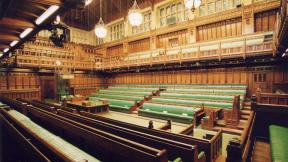

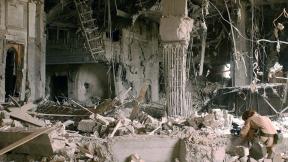
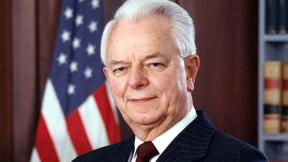
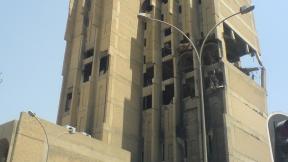


Comments
Islamic civilization
What is the world Muslim leaders doing to get us out of this mess.? Let them invest largely on education, the way their predecessors did, instead of risking the lives of the present and on coming to generations into being 2nd or 3rd class world inhabitants.
Location
~ confirms my suspicions
~ confirms my suspicions about Abraham having a strong connection with Bagdag ~ Iraq
Location
Very interesting and informative article on Baghdad which was maybe the greatest of all cities of the Islamic empires in history. Neshabpur, Samakhand, Bukhara, Damsacus, Shiraz, Al Qayhra, were also to name a few which made an impact on Islamic civilization.Thank you very much for this article - It is a must read for all especially young people. Suggest we all put it on the facebook for our young generation to know a little about the history and the present situtation.
Location
this article is very informative, and after long war Americans have realized their leaders mistake and now withdrawing from Iraq after depletion of their assets
Location
Articles like these are needed for children to learn more about their heritage .
Location
this is an interesting and informative article by Ustadh A/Maliq Mujahid on the recent and historical background of iraq.
Location
Absolutely wonderful!!! Abundunt details and historical information. Our kids will learn about our great Islamic heritage.
Location
Great artical
Location
We need more historical information to pass on our young generation.This is good..
Location
I posted this as a comment to another article as well, but felt it was relevant to your excellent article.The possibilities and opportunities are infinite.We are in a situation now, with the impending liberation of a large population of Muslims, where the potential is enormous.American Muslims must take advantage of this situation to demonstrate to the world that Muslims can prosper and have prospered in free secular societies.We must support and participate in the US's efforts to reconstruct Iraq and utilize it's vast resources to benefit the Iraqi people. We must help in creating an overwhelming example of success in the heart of the Arab world; by exploiting our intellectual and fiscal resources afforded us by our blessed lives in the US.We must play a monumental role in this grand effort and stop nowhere short of its success.The success of this endeavor could lead to sweeping changes in the Muslim and Arab worlds. Changes that God willing, could lead to the flourishing of the peaceful message of the Abrahmic religions; with better, safer and more peaceful lives for us here in America and the world.It is our duty as Americans and Muslims, the window is wide open and the possibilities and opportunities are infinite.God Bless.
Location
Pages
Add new comment